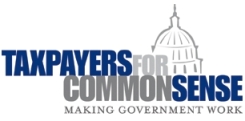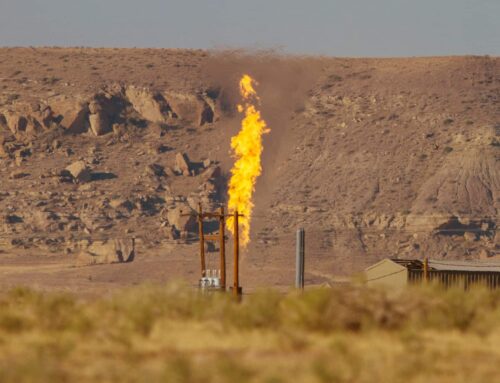|
FOR IMMEDIATE RELEASE
CONTACT Interior punts decision to determine royalty rate on risky oil shale speculation Washington, D.C. – Today, the Department of the Interior (DOI) announced a proposed rulemaking that presents four strategies for setting a royalty for commercial oil shale development. Under review for more than a year, only one scenario proposes a royalty rate for oil shale starting at 12.5%, the rate used for onshore oil and gas development. The DOI also released its final decision regarding which federal lands will be made available for oil shale research and tar sands activities. The royalty rate proposal is subject to a 60 day comment period. “While TCS is pleased to see that the Department of the Interior is considering an option that allows for a royalty rate in line with traditional oil and gas development, the other options proposed, along with the lack of a commercially viable product, still leaves us concerned that taxpayers will not receive a fair return on commercial oil shale leases,” said Autumn Hanna, senior program director, Taxpayers for Common Sense. Today’s announcement marks the final phase of Interior’s overhaul for managing oil shale activities on public lands. A previous rule adopted in 2008 set the royalty rate for oil shale at less than half the rate for conventional oil and gas development. This meant less revenue for both state and federal taxpayers. The other three options outlined in today’s proposal do not set a royalty rate, but offer varying rates such as a sliding scale royalty linked to the market price of oil and a process similar to that used in coal leasing to determine fair market value. “Interior’s decision to review the royalty rate and consider options that do not favor oil shale development over traditional oil and gas is a step in the right direction. But the other options proposed that sidestep a decision on the royalty rate and rely on other leasing structures or market rates would jeopardize taxpayer revenue,” said Hanna. The federal coal leasing program has recently come under fire from House and Senate Committee leadership and is the subject of a Government Accountability analysis and a Department of the Interior Inspector General review. Recent reports indicate taxpayers have lost billions on undervalued coal leases leading to insufficient payment of royalties. “Taxpayers will continue to lose unless overall accountability on oil and gas, and coal extraction on federal lands is improved. Relying on these failed systems for the oil shale leasing program will only bring more taxpayer losses,” said Hanna. Royalties and fees collected from resource development on public lands represent a valuable source of federal revenue. Yet, significant concerns have been raised that these revenues are not being collected, managed, and accounted for in a fair and accurate manner. According to a recent Government Accountability report, the Department of the Interior does not provide “reasonable assurance” that taxpayers are receiving their fair share of royalties from the production of oil and gas on public lands. As a result, taxpayers have lost billions on federal oil and gas leases that have been charged insufficient royalties or no royalties at all. Taxpayers for Common Sense plans to review the royalty proposal released today and submit official comments on the rulemaking. ### More on oil shale subsidies and risk to taxpayers
Taxpayers for Common Sense is an independent and nonpartisan voice for taxpayers, working to increase transparency and expose and eliminate wasteful and corrupt subsidies, earmarks, and corporate welfare. For more information, visit: www.taxpayer.net |











